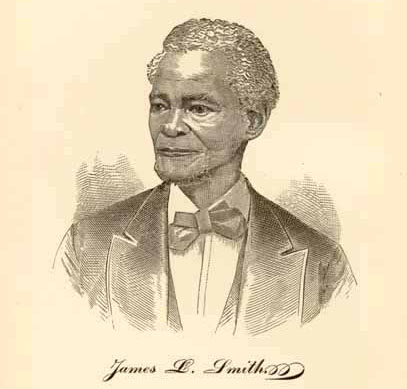James L. Smith Houses Norwich

From Enslavement to Freedom and Leadership
James Lindsey Smith was born into slavery in Heathville, Virginia, and trained as a shoemaker before making a daring escape in 1838. Along with two others, he crossed the Chesapeake Bay in a small boat, eventually reaching Philadelphia, where abolitionists helped him find refuge. He was sent to David Ruggles, a key figure in the Underground Railroad, who connected him with Reverend Samuel Osgood in Springfield, Massachusetts.
A New Life in Norwich
After attending Wesleyan Academy in Wilbraham, Massachusetts, Smith married Emeline M. Platt and settled in Norwich, Connecticut, in 1842. He became a prominent community leader, establishing a successful boot and shoemaking business and serving as a minister in the local Methodist Church. In 1881, he published his Autobiography, recounting his journey from enslavement to entrepreneurship, his escape to freedom, and his experiences building a new life in Norwich.
Legacy and Impact
Smith took great pride in homeownership, purchasing his first house at 59 School Street in Norwich’s historic Jail Hill neighborhood just three years after arriving in the city. Later, he acquired a second home at 16 Oak Street, where he and Emeline raised their family. His story reflects resilience, determination, and the strength of Norwich’s free Black community in the 19th century.
Today, James Lindsey Smith’s legacy endures as a testament to the power of perseverance and the support of abolitionist networks in securing freedom and opportunity for formerly enslaved individuals.
